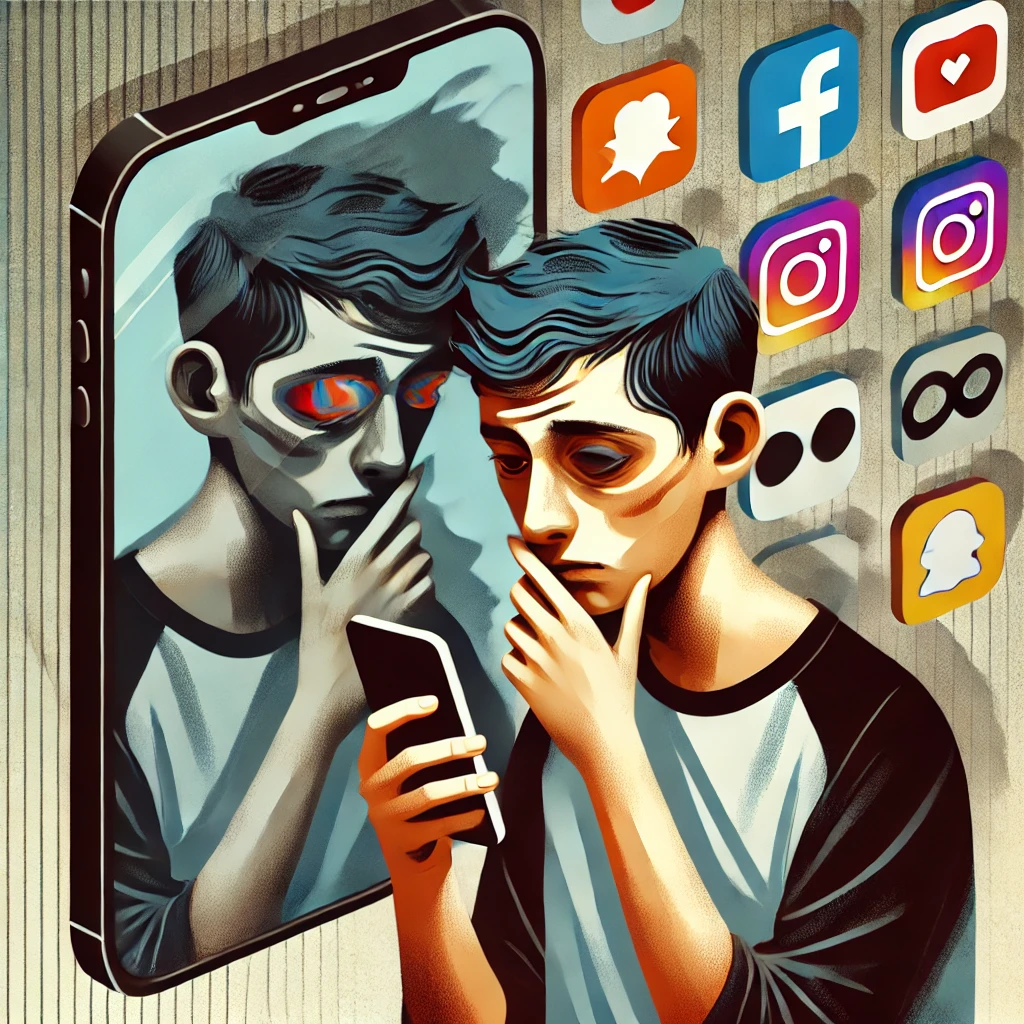
Health and Wellness
How Social Media Impacts Body Image and Mental Health


DINKAR
11/5/2024
Introduction
In today’s digital age, social media plays an integral role in shaping our perceptions of self-worth and body image. With platforms like Instagram, Facebook, and TikTok dominating our screens, the content we consume can significantly influence our mental health. While social media can foster connection and community, it also poses risks that can lead to negative self-image, anxiety, and depression. This article delves into how social media affects body image and mental health, highlighting both the positive and negative aspects, and offers tips on how to navigate this digital landscape mindfully.
The Double-Edged Sword of Social Media
Social media can be both a source of inspiration and a breeding ground for unrealistic standards. On one hand, it allows users to share their journeys, celebrate diversity, and promote body positivity. On the other hand, it often showcases heavily filtered images that perpetuate the ideal body type, leading to comparison and self-doubt.
The Role of Influencers and Celebrities
Influencers and celebrities significantly shape beauty standards on social media. Their posts often highlight a curated lifestyle, featuring idealized body images that many strive to achieve. Research indicates that exposure to such content can lead to:
- Social Comparison: Users may compare themselves to influencers, leading to feelings of inadequacy.
- Unrealistic Expectations: Filters and editing software can create unattainable beauty ideals, resulting in discontent with one’s own appearance.
- Body Dissatisfaction: Continuous exposure to idealized images can lead to a negative body image, which is closely linked to mental health issues.
The Impact on Mental Health
The relationship between social media, body image, and mental health is complex. Here are some key areas where social media can affect mental well-being:
- Increased Anxiety and Depression: Studies have shown a correlation between high social media usage and increased symptoms of anxiety and depression. Users may feel pressure to present a perfect image, leading to stress and feelings of inadequacy.
- Fear of Missing Out (FOMO): Constantly seeing friends or influencers engaging in exciting activities can trigger FOMO, which can exacerbate feelings of loneliness and anxiety.
- Cyberbullying: Social media platforms can be a hotspot for cyberbullying, which negatively impacts self-esteem and mental health. Victims of cyberbullying may experience depression, anxiety, and a decline in overall mental well-being.
- Addictive Behaviors: The desire for likes and validation can lead to addictive behaviors, causing individuals to spend excessive time on social media at the expense of real-life interactions and self-care.
Positive Aspects of Social Media
While social media poses risks, it also offers positive opportunities for mental health and body image improvement:
- Body Positivity Movements: Many influencers and organizations promote body positivity, encouraging acceptance of diverse body types. These movements can foster self-love and acceptance among users.
- Supportive Communities: Social media can connect individuals with supportive communities where they can share experiences and find encouragement. These spaces can be beneficial for those struggling with body image issues or mental health challenges.
- Access to Resources: Users can find valuable information on mental health, body image, and wellness through social media. Many mental health professionals and organizations share educational content, promoting awareness and understanding.
Tips for Navigating Social Media Mindfully
To mitigate the negative impacts of social media on body image and mental health, consider the following tips:
- Curate Your Feed: Follow accounts that promote body positivity, mental health awareness, and diversity. Unfollow or mute accounts that trigger negative feelings or comparisons.
- Limit Screen Time: Set boundaries on your social media usage. Consider allocating specific times for social media and taking breaks to focus on real-life interactions and self-care.
- Practice Self-Compassion: Remind yourself that social media often portrays a curated version of reality. Be kind to yourself and recognize that everyone has flaws and struggles.
- Engage in Positive Activities: Replace some social media time with activities that promote well-being, such as exercise, reading, or spending time in nature.
- Seek Professional Help: If social media significantly impacts your mental health, consider speaking with a mental health professional. They can provide support and coping strategies tailored to your needs.
Conclusion
Social media undeniably influences our body image and mental health. While it can foster connection and promote body positivity, it also presents challenges that can lead to negative self-perception and mental health issues. By being mindful of our social media consumption and actively curating a positive online environment, we can mitigate its adverse effects and promote a healthier relationship with our bodies and minds. As we navigate the digital landscape, let’s strive to create a community that uplifts and supports one another, recognizing that true beauty comes in all forms.